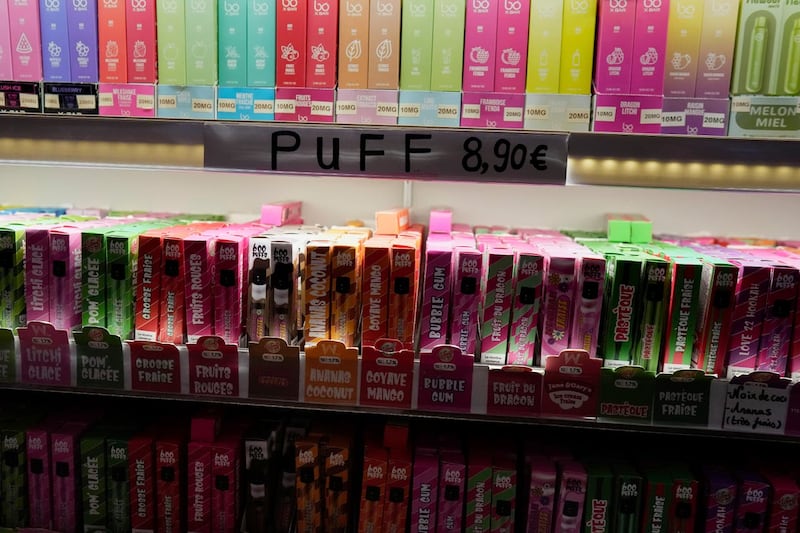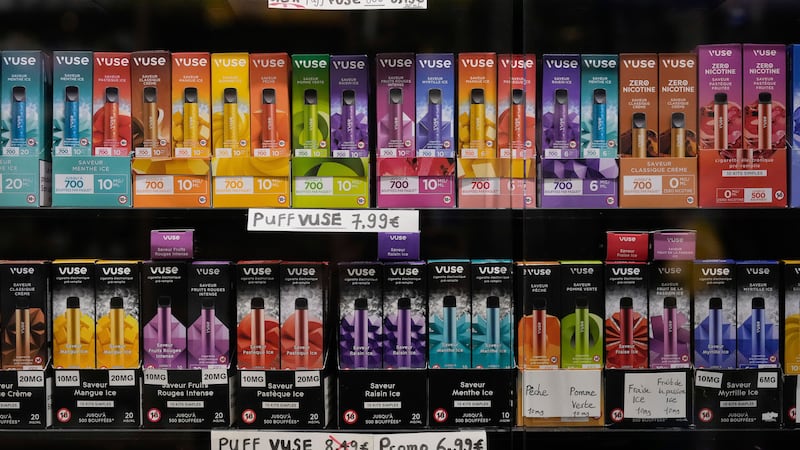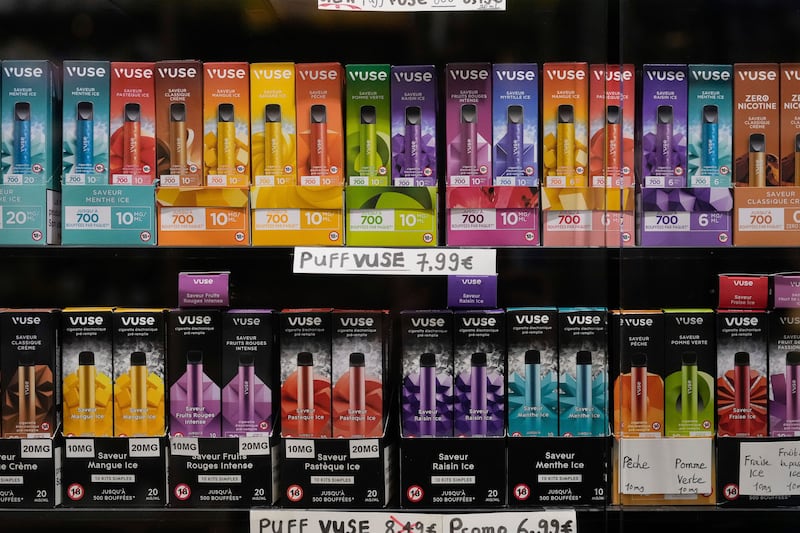France’s national assembly has unanimously approved a bill to ban single-use, disposable e-cigarettes.
The move is an attempt to protect young people drawn to their flavours, and to mitigate the environmental impact of the disposable products, known in France as “puffs”.
Legislators adopted the bill in a late-night vote on Monday with 104 in favour, zero against.
The bill, supported by the government, will then move to the senate where it is expected to be adopted as well. It could go into effect by September 2024.
Disposable e-cigarettes are small, battery-powered devices that are especially popular among teenagers for their sweet flavours.

While they do not contain tobacco, many include nicotine, a dangerous chemical known for its addictive properties.
They differ from reusable vaping devices in that they are not designed to be refilled or recharged. Their small, non-rechargeable lithium batteries often end up in landfills.
This bill is part of a broader trend. The UK, Ireland, and Germany are considering similar measures.
New Zealand and Australia have already implemented restrictions, with the former mandating lower nicotine levels and restrictions on vape shop locations near schools.
Three years ago, the US food and drug administration cracked down on flavoured reusable e-cigarettes like Juul.
However, the ban – which did not apply to single-use products – was unable to stop a surge in unauthorised disposable e-cigarettes, primarily from China, from flooding the market.








